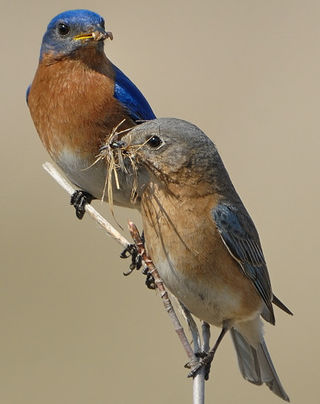Depression
Why Being Organized Matters
The cost of being messy and what to do about it.
Posted August 4, 2019 Reviewed by Davia Sills

Do you struggle to stay organized? Or are you neat and tidy, but live with someone who rarely cleans and collects, and collects, and collects?
Not all of us are organized, but when we share our space with another, things can get prickly pretty quickly if clutter abounds in the midst of a neater partner. Whether you’re the messy one or your significant other is the culprit, let’s discuss why the mess is problematic and how to bring harmony and organization to your inner sanctum.
Perhaps the most crucial reason to reduce (if not eliminate) mess is for your health. Keeping trash around, failing to clean regularly, or simply leaving your home in disarray can be a breeding ground for bacteria and potential diseases.
Think about birds and their nests. Do you ever wonder where all the “trash” goes? Songbirds, like bluebirds, are known to haul packages of their chicks’ poop out of their nests and dump it elsewhere. And they don’t stop there: They also get rid of uneaten food, eggshells, and even, sadly, deceased nestlings. Other species, such as approximately 60 varieties of ants, divide and conquer with specialized workers to handle the dirty work.
Whichever way you slice it, there is cooperation when it comes to doing the dirty work. In bluebirds, both adults share the housekeeping duties, because it reduces the work for any one individual. If you live with someone, make sure you are stepping up and cooperating. Create a list, divide the chores, and make it a fun and "family" affair. Play music, have a little friendly competition, whatever it takes to keep the space clean and free of mess.
A second reason to declutter and keep you home well-ordered? Your brain will work better. If you’re on the neater side of the spectrum, you probably already know this. Northern Pacific rattlesnakes follow the principle of “keep things clear so you can function at your best.” These predators don’t succeed if they are distracted by needless stimuli and have been observed regularly sweeping aside vegetation and debris on their hunting grounds. It’s believed that less mess makes it easier to hunt and catch prey.
We might not be stealth predators, but research shows that excessive clutter and mess is distracting and inhibits our ability to concentrate and focus. Rattlesnakes don’t wait for mounds of debris to accumulate. Every time they go through their territory they do a little tidying up. If you don’t let things pile up, it is much much easier to stay organized.
In case you hadn’t noticed, many people like to collect things. And while a little accumulation may not be a bad thing, before you know it, we quickly can be overrun with stuff. For some people, it’s bottle caps, while for others, it may be giraffe figurines. This is not so different from satin bowerbird males that like to collect anything blue to decorate their nuptial bower (they are trying to impress the ladies). And like them, many of us use the things we collect to decorate our space.
You’ve probably heard of Marie Kondo by now—unless you’ve been living off-grid or traveling in remote parts of the globe. Her unique "KonMari" method of decluttering and organizing has inspired thousands to purge excess belongings by evaluating each item and asking: "Does it spark joy?" If the answer is yes, then she also recommends having a place for everything.
Aside from joy, there is a practical reason for everything to have a place… you can find it again. New Caledonian crows are not famous YouTube stars, but they are famous for their ability to craft twigs into hooked tools to get at food. This takes a lot of effort, and in their very own intuitive KonMari style, they also care for their tools and store them in a special spot when they’re done. Without good organization, you misplace items and have to buy them all over again. Soon you will find yourself with two or three scissors or hammers.

There are many ways to give everything a place. You could put similar items together. Or you could look to tree squirrels that have a touch of the KonMari method for a few ideas. They use a mnemonic technique called “spatial chunking” to sort out and bury their nut stash by size, type, and perhaps even taste. The theory is they can remember where to find what they need.
Whether you identify with a crow, a tree squirrel, or a fastidious rattlesnake, we could all benefit from a little cleaning up every now and then, for psychological reasons as well as aesthetics. A clutter-free lifestyle is less stressful and more relaxing. To help you maintain peace and harmony in your home (and in your relationship) a few minor adjustments can go a long way.
1. If you live with another, divide the chores and cooperate to keep the home clean and free of clutter.
2. Do a little each day so that you minimize the buildup of a mess. Large messes are more daunting.
3. Whether it is the tree squirrel or KonMari method, having a place for everything is crucial to keeping a space organized.
Finally, sometimes, collecting becomes hoarding, and this can be indicative of mental illness. Depression is linked to an inability to clean or organize your personal space. If you or your loved one are experiencing depression or obsessive-compulsive hoarding, be compassionate with yourself and/or the other and seek the help of a professional.
Facebook image: oneword/Shutterstock




